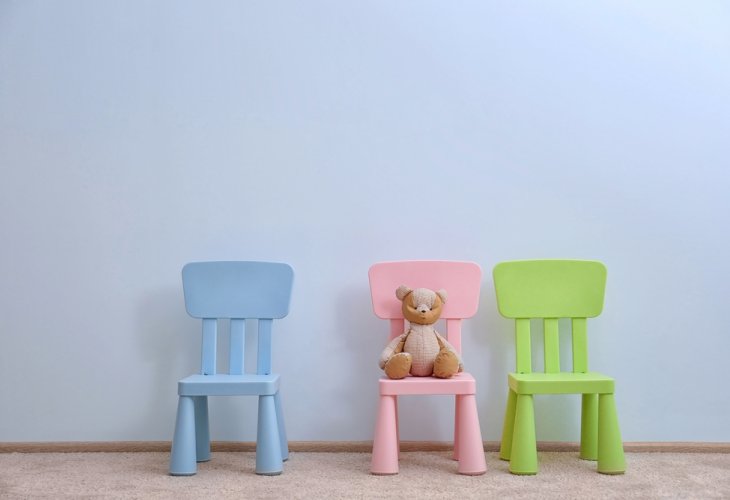Personal Stories
A Father's Miraculous Return
The incredible power of breaking your nature to bring about healing and miracles from Above.
 (Photo: shutterstock)
(Photo: shutterstock)"The patient's condition deteriorated. His body systems shut down, with no medical explanation. The entire family was devastated. The situation was simply unimaginable."
What follows is a deeply moving story about the power of choosing humility, and the spiritual strength that can come from rising above one’s natural tendencies.
This heartfelt letter was published in the "Letters to the Editor" section of Yated Ne’eman. It shows just how important it is to be careful not to cause pain to another person and how powerful it is when someone overcomes their own traits for the sake of peace and healing.
“I live in one of the cities in central Israel,” the writer begins, “and my life is filled with the demands of work and raising my precious children.” She goes on to share a story in two parts. The first part involves a neighbor in her building who was going through a hard time. For some reason, the neighbor seemed to direct her frustration toward the writer, complaining that they didn’t speak enough or have enough contact.
"Everyone understands that with a busy daily schedule, it's not always possible to maintain deep or demanding relationships, especially if you don't feel naturally close to someone,” the writer explains. “But this neighbor was very strict with me about it. One day, I reached my limit and told her over the phone that I’m very busy with work and family, and I couldn’t keep in close contact with her.”
The neighbor, however, took offense. For the next two months, she ignored the writer completely and refusing to even say hello in the hallway.
“I felt her anger toward me, even though I had done nothing wrong. I didn’t know what to do. I asked a rav (rabbi) for guidance. Should I just leave it alone, or try to fix things?” His advice was clear: “It’s very important,” he told her, “to make her feel like she’s not being abandoned. Make her feel you’re still her friend.”
The second part of the story is about the writer’s extended family. Her sister-in-law’s brother, a healthy man, suddenly became ill with what seemed like a regular case of pneumonia. But his condition got worse fast. He had to be hospitalized, sedated, and put on a ventilator. The doctors did everything they could. The top specialists were called in. But they had no explanation for his rapidly declining condition. Eventually, they told the family: “We’ve done all we can. All that’s left is to pray.”
His wife, a young mother of three, was overwhelmed. Just a month before, she had lost her own mother to illness. Now she was caring for the children alone, all while sitting beside her husband’s hospital bed, watching his condition worsen. Her little ones didn’t understand what had happened. “Where did Abba go?” they asked. With tears in her eyes, she told them that their father was very sick, and needed lots of tefillot (prayers) and mercy from Hashem.
The entire family pulled together. They davened (prayed) night and day. They asked friends, neighbors, and communities to say tehillim (psalms) for him. His name was passed around to every corner of the Jewish world. Still, his condition worsened. His body began to shut down. The doctors had no answers. The family was in deep pain. It seemed hopeless.
At that exact time, the writer made a decision.
“I was alone in my house,” she recounts, “and with tears in my eyes, I turned to Hashem. I said out loud, ‘I am going to do something to break my middot (personal character traits), even though I didn’t hurt this woman. I’m doing this for his full recovery.’”
With that, she walked to her neighbor’s home. For the next four hours, she sat and poured out her heart. She humbled herself, deeply. She didn’t defend herself. Instead, she told her neighbor that the distance between them came from her own faults, that she was struggling, that her family had its own difficulties, and that maybe she was being selfish. “I brought myself down to a place I never imagined,” she writes. “I made myself lower, flawed, even someone in need of her help. It took everything I had.”
Emotionally drained but filled with a sense of purpose, she finally left her neighbor’s home with tears in her eyes. “I felt that I had truly done something meaningful, that I had conquered my inner nature for a higher cause.”
The very next day, her sister-in-law called.
“No one can explain it,” she said, barely able to speak. “But in the morning, exactly during those same hours you were with the neighbor, he suddenly began to breathe on his own. The doctors were stunned. They removed the ventilator. He sat up. He walked. He asked to go home!”
One doctor refused to discharge him until he saw him climb stairs on his own. To their amazement, he did and without a walker. He climbed three full floors by himself. The doctors had no explanation. It was a complete turnaround.
And shortly afterward, he came home healthy and whole, Baruch Hashem (thank G-d) to his wife, who had never left his side, and to his three children, who received their Abba back as a precious gift. Just this past Shabbat, he and his family were able to host the writer’s brother’s family for a joyful meal together.
“When I heard about the miracle, tears filled my eyes,” the writer concludes. “I felt so clearly how much Hashem cares about the pain we cause others even when it’s unintentional. The power of breaking your nature, of choosing peace and kindness even when it’s hard, created such great merit in Heaven. And I am so grateful that I was able to be the one through whom this great salvation came.”

